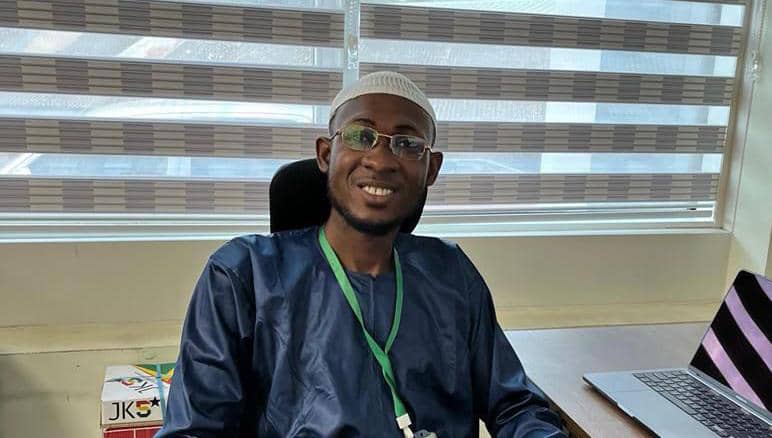Introduction
The Makaranta school system, which provides Islamic education to Muslim children in Ghana, plays a vital role in preserving Islamic values, teachings, and culture.
However, the absence of a standardized national curriculum, regulatory framework, and oversight has led to significant challenges, including inconsistent academic standards, high dropout rates, and limited proficiency in Arabic among graduates.
This proposal outlines the need for a unified national curriculum and a regulatory body to address these issues and elevate the quality of Islamic education in Ghana.
Key Challenges in the Current Makaranta System
- Lack of a Standardized Curriculum: The absence of a unified curriculum leads to inconsistent teaching methods, content, and learning outcomes across Makaranta schools.
- Prolonged Stagnation in Classes: Students often spend excessive years in the same class without being promoted, leading to frustration and disengagement.
- Uncoordinated Academic Calendars: Schools operate on different academic schedules, creating inefficiencies and disparities in learning timelines.
- High Dropout Rates: Many students leave the system prematurely due to dissatisfaction with the lack of progress or structure.
- Limited Arabic Proficiency: Graduates often lack the ability to speak or write Arabic effectively, undermining the primary goal of Islamic education.
- Absence of Regulation: There is no formal body to license, monitor, or regulate Makaranta schools or teachers, leading to varying standards of education.
Proposed Solutions - Development of a National Curriculum
A standardized national curriculum for Makaranta schools will ensure consistency, quality, and relevance in Islamic education. The curriculum should include:
- Core Subjects:
- Arabic Language (reading, writing, and speaking)
- Islamic Studies (Quranic recitation, Tafsir, Hadith, Fiqh, and Akhlaq)
- Basic Secular Education (mathematics, science, and English) to align with national educational standards.
- Structured Progression: Clear guidelines for student promotion based on competency rather than time spent in a class.
- Age-Appropriate Content: Tailored learning materials for different age groups to ensure effective comprehension.
- Assessment Framework: Regular evaluations to measure student progress and teacher effectiveness.
- Establishment of a Regulatory Body
A regulatory authority, such as the National Council for Makaranta Education (NCME), should be established to oversee the implementation of the curriculum and regulate Makaranta schools. The NCME will:
- License Schools: Ensure that Makaranta schools meet minimum standards for infrastructure, teaching quality, and curriculum delivery.
- Certify Teachers: Issue teaching licenses to qualified instructors who meet the required criteria (e.g., proficiency in Arabic, Islamic knowledge, and teaching skills).
- Monitor and Evaluate: Conduct regular inspections and assessments to ensure compliance with national standards.
- Provide Training: Organize workshops and training programs for teachers to enhance their skills and knowledge.
- Alignment with National Education Policies
The Makaranta curriculum should complement Ghana’s national education system to ensure that students receive a well-rounded education. This includes:
- Integration of Secular Subjects: Incorporating basic literacy, numeracy, and science to prepare students for further education or vocational training.
- Recognition of Certificates: Collaboration with the Ghana Education Service (GES) to recognize Makaranta certificates for admission into formal schools or higher Islamic institutions.
- Community Engagement and Awareness
- Parental Involvement: Educate parents on the importance of the new curriculum and their role in supporting their children’s education.
- Community Support: Engage local leaders and Islamic organizations to advocate for the reforms and provide resources for implementation.
- Addressing Dropout Rates
- Student Motivation: Introduce incentives such as awards, scholarships, and recognition for outstanding performance.
- Counseling Services: Provide guidance and support to students at risk of dropping out.
- Flexible Learning Options: Offer part-time or evening classes for students who may need to work or support their families.
Implementation Plan
Phase 1: Curriculum Development
- Form a committee of Islamic scholars, educators, and curriculum experts to design the national curriculum.
- Pilot the curriculum in selected Makaranta schools to assess its effectiveness.
Phase 2: Establishment of the Regulatory Body
- Create the National Council for Makaranta Education (NCME) with representatives from the government, Islamic organizations, and educational institutions.
- Develop guidelines for school licensing and teacher certification.
Phase 3: Training and Capacity Building
- Organize training programs for teachers and school administrators on the new curriculum and teaching methodologies.
- Provide resources such as textbooks, teaching aids, and digital tools.
Phase 4: Nationwide Rollout
- Gradually implement the curriculum in all Makaranta schools across Ghana.
- Monitor progress and make adjustments based on feedback and evaluation.
Expected Outcomes
- Improved Learning Outcomes: Students will achieve higher proficiency in Arabic and Islamic studies, as well as basic secular subjects.
- Reduced Dropout Rates: A structured and engaging curriculum will keep students motivated and reduce attrition.
- Standardized Education: A unified curriculum will ensure consistency and quality across all Makaranta schools.
- Enhanced Recognition: Graduates will be better prepared for further education or employment, increasing the value of Makaranta education.
- Stronger Regulation: The NCME will ensure that schools and teachers meet high standards, improving the overall quality of Islamic education.
Conclusion
The introduction of a national curriculum and a regulatory body for Makaranta schools in Ghana is essential to address the current challenges and elevate the standard of Islamic education.
By providing a structured, standardized, and inclusive system, this proposal aims to empower students, support teachers, and strengthen the role of Makaranta schools in Ghana’s educational landscape.
With the support of the government, Islamic organizations, and the community, this initiative can transform the Makaranta system into a model of excellence in Islamic education
Written by Ibrahim Salahadeen, Concerned Muslim and Former Makaranta Teacher
DISCLAIMER: The Views, Comments, Opinions, Contributions and Statements made by Readers and Contributors on this platform do not necessarily represent the views or policy of Multimedia Group Limited.

